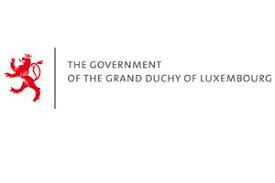PEFA training for executives of financial administration in Central Africa: Workshop on the Implementation of the Framework for performance measurement of PFM Yaoundé, 8-10 November 2011
1. Context
This training, mirroring that held in Ouagadougou in December 2010 for the Economic Monitoring Union - (UEMOA) countries, was proposed by the Ministry for Foreign Affairs - (MAE) and the French Minitry of Foreign and European Affairs (AFD). It brought together government financial managers from the countries of the Commission de la Communaute Economique et Monetaire de l'Afrique Centrale - (CEMAC) and neighboring Burundi, Cameroon, Gabon, Central African Republic, Democratic Republic of Congo as well as representatives of the Commission de la Communaute Economique et Monetaire de l'Afrique Centrale - (CEMAC) as a regional institution. Host country, Cameroon was able to attend several of its officials involved in the implementation of the Public Expenditure and Financial Accountability (PEFA) 2008 and the implementation of a comprehensive reform plan supported mainly by the European Union - (EU) and the World Bank.
In addition to the international technical experts European Commission - (EC) and France stationed in Cameroon attended some of the modules. In total, 21 people attended all or part of the training.
2. Organization
The speakers were, as in Ouagadougou: Charles Seibert, Senior Public Sector Specialist, PEFA Secretariat, Washington, and Jean-François Almanza, Project Manager, Department of strategic management and forecasting, France / AFD. The training was assisted on site SCAC / Embassy of France (Mr. Matthew Vuillermet) and the French technical assistant position with the Treasury, Marcel Uguen.
The seminar was opened by the Minister of Finance of Gabon, Mr. Lazare Essimi Menye, and Ambassador of France Mr Bruno Gain. The latter also received the participants in his home for cocktails closing of the seminar. The working sessions were held at the Yaounde Hilton Hotel. It should be noted that some of the participants (Central African Republic - CAR, Burundi) have encountered difficulties of transport made them miss the start of the seminar.
3. Contents
In accordance with the PEFA interactive training methodology, the session was based on short presentations illustrated with exercises. It was further decided to give emphasis to the presentation of country experiences, namely the Central African Republic, Cameroon and Gabon and CEMAC the outlook for public finances for the sub-region. The program, was generally respected. It has to address the main points of the PEFA methodology and many discussions took place, to the satisfaction of participants (cf. infra, evaluation). In addition, Ms. Frédérique Samé-Ekobo economist based in the EU representation in Yaounde, presented the support of technical and financial partners in the field of public financial management in addition to the session on the presentation of PEFA assessment of Cameroon (2008).
4. Impact
The seminar received some media coverage, thanks to the presence of the minister and the ambassador. It was even reported by a prominent banner on the street (see photo). The meeting at the ambassador’s residence was an opportunity to inform the representatives of technical and financial partners about the seminar: EU (Mr. Raul Mateus Paula), Asian Development Bank - (ADB) (Denis Tankou Leopold) and World Bank. In France, the AFD has devoted a section of its internal newsletter to this training.
5. Evaluation by participants
An evaluation form was completed by 16 participants. The assessment of the activities is generally very good. (4.60 / 5 for the general evaluation of the workshop). In general, participants have noted the usefulness and interest of the modules, however wished that more time be given to these activities. Indeed, as often, most participants found the seminar duration too short, as evidenced by both the notation that the comments (notation of time allowed from 3.8 to 4.3, the value of 4.2 to 4.6).
Participants particularly enjoyed the exercises and case studies, especially on the CAR, for which the elements were given general information report (main parts) and the narrative of a selection of indicators that participants had Note to compare their assessment to that actually realized. The experience would likely be renewed.
The exercises on the notation (Mini- case study),thanks to their concrete and technical aspects were much appreciated. It should be noted that all materials, including presentations of the participants on the spot, will be sent by email.





